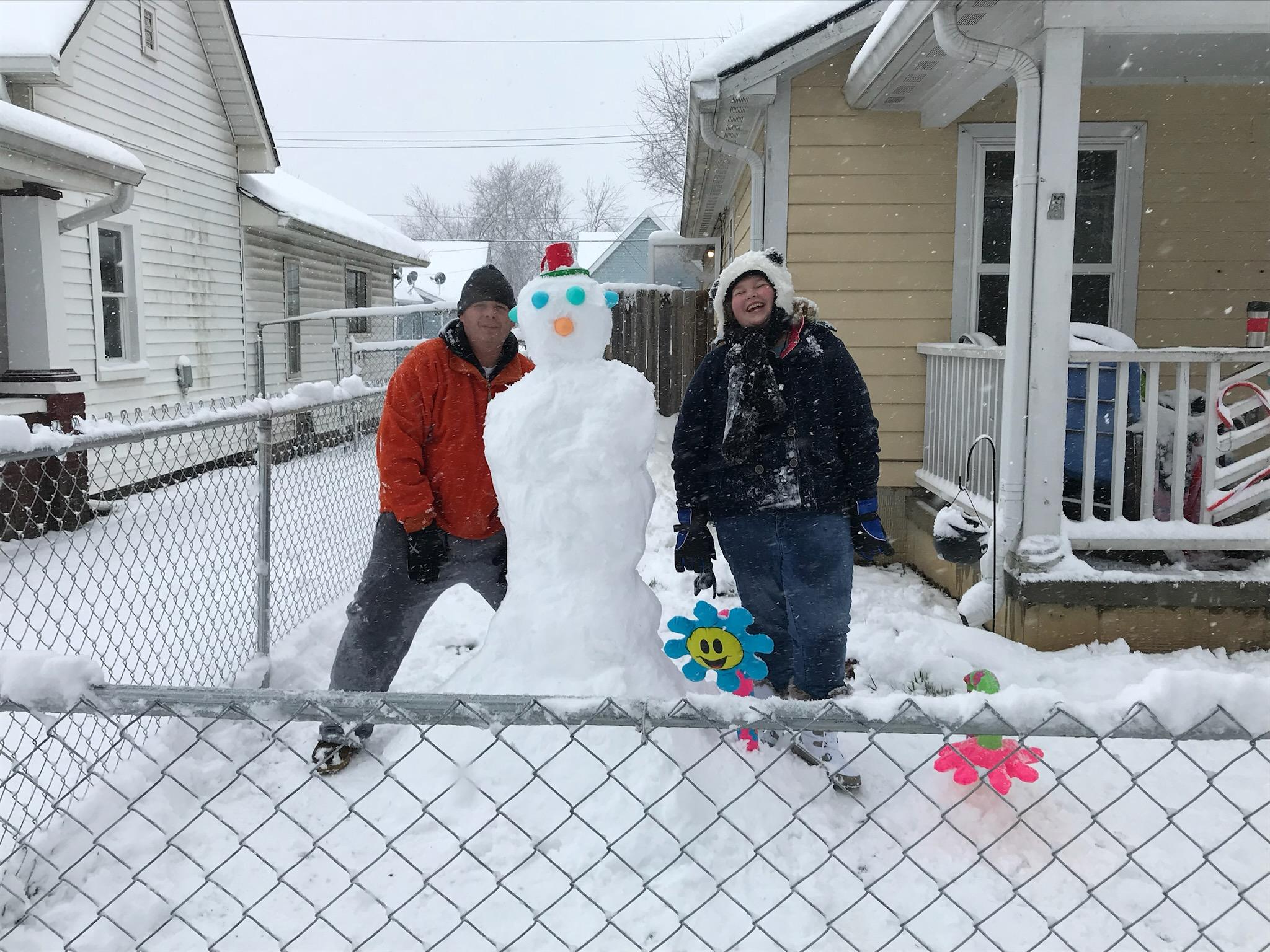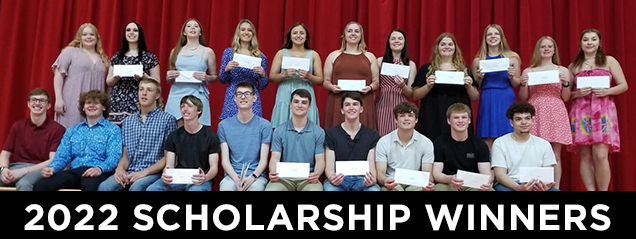
Dollars for Scholars Support Goes Beyond Bachelor’s Degrees
Not surprisingly, colleges and universities across the board experienced steep declines in enrollment during the pandemic, and the anticipated recovery has been slow and uneven.
Filed In
- Scholarship Solutions
Topics
- Dollars for Scholars
- Vo-Tech
Special Guest Author Nicole Alexander
Not surprisingly, colleges and universities across the board experienced steep declines in enrollment during the pandemic, and the anticipated recovery has been slow and uneven. According to the National Student Clearinghouse Research Center’s annual enrollment report, the largest enrollment growth is being fueled by certificate programs.
Scholarship America’s community-based Dollars for Scholars are offering much-needed support to their local students who opt to attend community colleges, vocational-technical schools and similar institutions to pursue certifications. Last year, 39% of Dollars for Scholars offered scholarships explicitly for two-year and vo-tech schools. They include North Tama Dollars for Scholars (Traer, Iowa) and Eatonville (Washington) Dollars for Scholars, who both sat down to talk with us about the growth of their two-year scholarship programs.
North Tama Dollars for Scholars has provided these types of scholarships from the start. When board member Marilyn Bauch and her husband Jared, the chapter president, established the chapter in 2019 one of their primary values was to provide impactful scholarships for students who needed them the most, particularly those going to community colleges.
“I recall attending awards ceremonies and seeing that all the scholarships were going to the same 4 or 5 top students who were getting institutional aid from the universities they were planning to attend as well. When Jared and I first considered providing scholarships, we talked with the superintendent and the high school principal to learn what students needed. They told us there was a need for scholarships for a greater range of students and in amounts large enough to be impactful,” Marilyn said.
Renewable Scholarships and Vo-Tech Support
From that conversation, their mission was clear. When their Dollars for Scholars awarded their first scholarships in 2020, renewable awards were a key component, and five of the initial ten scholarships were for students attending vo-tech programs at community colleges. To this day 48% of their scholarships are specifically for students pursuing certifications.

“Things have changed fundamentally in less than ten years. State universities were becoming cost prohibitive and our community has seen an increasing need for more electricians, mechanics, medical technicians and similar professions” she explained.
And the response from the community has been tremendous. According to Marilyn, they’ve received $50,000 from their American Legion Post, and a local farmer anonymously provided the same amount to specifically fund vocational-technical scholarships. Small business owners, entrepreneurs, and even the mayor have supported these scholarships financially. One of North Tama Dollars for Scholars’ key fundraisers is a matching donation challenge held during high school class reunions. One of those donors expressed how excited he was to see that the chapter was providing vocational scholarships and reflected, “I can only imagine what I could have done if someone would have given me a leg up like that.”
Helping Students On All Paths
In Washington, Kelli Bacher, treasurer of Eatonville Dollars for Scholars, is a professional educator who knows this story all too well.
“As a counselor I’m aware that for many years we’ve pushed kids to go to four-year institutions. But not every student wants to take that path,” she said. She was introduced to Dollars for Scholars when her own children started high school, has been actively involved ever since and says, “it’s one of the most fulfilling things I do.”

Kelli has witnessed donors’ enthusiasm for supporting a variety of types of scholarships for students in their small community of Eatonville, WA. Their Dollars for Scholars, established in 1994, was funded by a large founding endowment from a local family. More recently, donors have entrusted the chapter with funds to support students attending vo-tech schools in the area—a $1,500 award funded by a retired teacher in memory of her brother; a scholarship provided by a mother in honor of her son, who was involved in Future Farmers of America (FFA); and a scholarship for students pursuing construction trades supported by an alumnus in the construction industry.
According to Kelli, Eatonville Dollars for Scholars’ general scholarships are open to students attending four-year institutions and community colleges, and they have five awards focused specifically on students attending vo-tech schools. She recalled the chapter awarding funds to a student in an apprenticeship program and enabling him to purchase the tools for his trade which costs upwards of $900.
“I want a good plumber, electrician, and carpenter, so we need to support students going into these types of hands-on occupations,” she said.
Fighting the “I Could Never Get A Scholarship” Mindset
Despite the community support of these generous awards, both Kelli and Marilyn admit that their Dollars for Scholars have had to proactively promote their vo-tech scholarships—since most of the students they were designed for didn’t believe there was an opportunity for them.
“It was a slow, hard process to get the students to apply, but with community support we’ve definitely made strides. The assistant principal at our high school actively promotes the opportunities to our students and we have a Career Center where they receive information about our scholarships as well. And a retired school official helps students go in and set up their student profiles in ChapterNet, [our online scholarship management system],” Kelli said.
Fear of completing the FAFSA was initially a barrier for some of the North Tama Dollars for Scholars students and their families. Similar to Eatonville Dollars for Scholars, they’ve engaged teachers, guidance counselors, and others in the community help ease those concerns and point families to helpful resources to aid with FAFSA completion. And it has been well worth the effort.
“Some of our scholarships have a minimum 2.0 GPA requirement and I’ve found it rewarding to see students who initially thought there was no way they’d be ‘good enough’ to get a scholarship get one and go on to achieve success. It builds their self-esteem, increases employability and some kids even come out with no debt because they’re willing to work while in school,” Marilyn said.
Nicole Alexander is the Director of Student Success Programs at Scholarship America.
 hbspt.cta.load(241375, '204f7732-d0bf-4fcc-aa13-f868b4b329ee', {"useNewLoader":"true","region":"na1"});
hbspt.cta.load(241375, '204f7732-d0bf-4fcc-aa13-f868b4b329ee', {"useNewLoader":"true","region":"na1"});
Related Articles
Browse All

Featured Scholarships: February/March 2026

Scholarship Sponsor Q&A: Charles L. Shor Foundation Epilepsy Scholarship

Our team is here to help you achieve your goals and build your custom scholarship program.